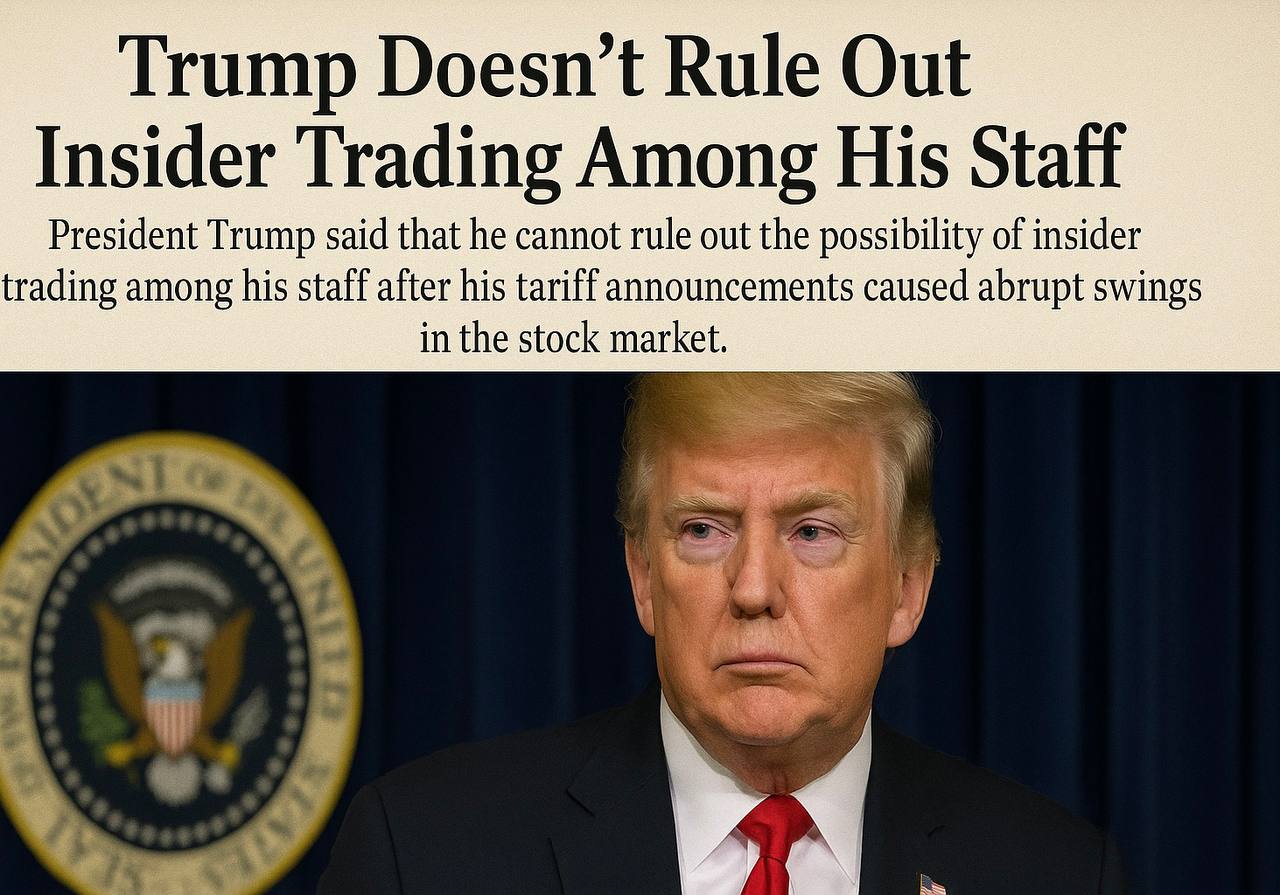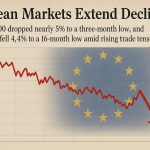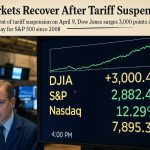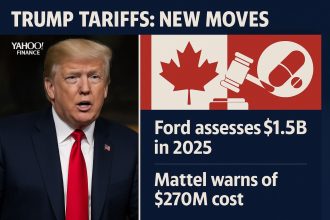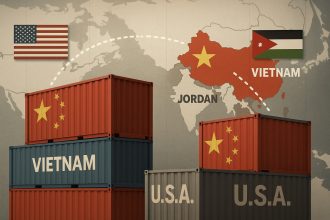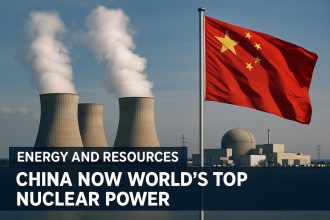Detailed Analysis and Context
On April 9, 2025, at 02:56 PM CEST, the financial world was abuzz with President Donald Trump’s sudden policy shift. Just hours before announcing a 90-day pause on most additional trade tariffs (except for China, which faced a 125% tariff), Trump posted on Truth Social, “THIS IS A GREAT TIME TO BUY!!! DJT.” This post, timed perfectly before a market-moving announcement, sent global stock indices soaring. The S&P 500 closed up by more than 9%, the Nasdaq rose over 12%, and even international markets like Japan’s Nikkei 225 jumped 9% (The Guardian). But beneath the surface, this event sparked a heated controversy over insider trading and market manipulation, with Trump reportedly acknowledging he couldn’t rule out such activities among his staff.
As Anna Petrova, a journalist with a decade of experience crafting human-centered stories, I’ve seen how economic policies can ripple through lives. This story isn’t just about numbers—it’s about trust, ethics, and the fine line between public announcements and private gains. Let’s unpack what happened, why it matters, and what it means for investors and policymakers alike.
Background: Tariffs, Tweets, and Market Volatility
To set the stage, let’s rewind to early April 2025. Trump had imposed steep tariffs on imports from nearly all U.S. trading partners, triggering fears of a global trade war. The markets reacted harshly, with major indices like the S&P 500 and Nasdaq plunging as investors braced for economic fallout (NBC News). Then, on April 9, came the surprise: a tariff pause that reversed much of the damage. The S&P 500 surged 9.5%, marking one of its strongest days in years, while the Nasdaq, heavily weighted with tech stocks, saw even higher gains (TIME).
This wasn’t just a U.S. phenomenon. Stocks continued to rise in Asia and Europe, with London’s FTSE 100 index rising by as much as 4% in early trading (The Guardian). The market’s reaction was swift and dramatic, but the timing of Trump’s social media post raised eyebrows. Was it a coincidence, or did someone with inside knowledge benefit?
The Controversy: Insider Trading Allegations and Trump’s Response
The controversy erupted almost immediately. Democrats, led by figures like Senators Adam Schiff and Ruben Gallego, called for investigations into whether Trump, his family, or administration officials engaged in insider trading or market manipulation (TIME). They pointed to the suspiciously timed Truth Social post, suggesting it might have been a signal for those in the know to buy stocks before the tariff pause was announced.
Adding fuel to the fire, Trump reportedly acknowledged that he couldn’t rule out the possibility of insider trading among his staff, a statement that deepened the perception of a White House potentially playing fast and loose with sensitive economic information (Newsweek). This admission, while not a confession, raised serious legal and ethical questions. Legal experts, however, have offered mixed views. Some argue that since Trump’s post was public, it might not legally qualify as insider trading, which typically involves trading on material, nonpublic information (PBS News). Others point to the rapid sequence of events and market movements, suggesting there could be more to the story.
Further scrutiny came from unexpected angles. For instance, Nasdaq call volumes spiked less than 20 minutes before Trump’s announcement, fueling speculation that someone had advance knowledge (Al Jazeera). Democrat Congresswoman Alexandria Ocasio-Cortez highlighted this anomaly in an X post, calling for transparency from members of Congress regarding their stock trades (Al Jazeera).
Legal and Ethical Implications: Where’s the Line?
Insider trading is generally defined as buying or selling a security, in breach of a fiduciary duty or other relationship of trust, based on material, nonpublic information (TIME). In this case, the debate centers on whether Trump’s post constituted public information or if there was nonpublic information shared with select individuals before the official announcement. Legal experts like those cited by PBS News suggest proving insider trading can be challenging, especially when information is made public promptly (PBS News).
But the ethical question looms larger. Insider trading undermines trust in the market, creating a perception that the system is rigged for those with access to privileged information. Trump’s actions, whether intentional or not, have reignited debates about the role of politics in finance. Should a president’s social media posts be treated as investment advice? And how can we ensure economic policies are communicated fairly to all investors?
Market Impact: Winners, Losers, and Investor Reactions
The tariff pause had real-world consequences beyond the headlines. Technology stocks, which had been hit hard by the initial tariff fears, saw significant recoveries. Companies like Tesla, which had seen their stock prices plummet, experienced sharp rebounds, with Tesla’s shares jumping 18% immediately after the announcement (TIME). Investors were relieved by the pause, as it provided a temporary reprieve from the uncertainty that had gripped the markets. However, many remain cautious, wondering if this is just a temporary measure or if more volatility is on the horizon.
Financial analysts are divided on the implications. Some see Trump’s move as a sign of flexibility, suggesting he’s willing to adjust policies based on market feedback (Commentary: Are White House insiders using Trump’s tariff announcements to play the stock market? It’s not that simple). Others warn that this kind of unpredictability could erode investor confidence in the long run. “It’s like trying to predict the weather in a hurricane,” a friend of mine in finance told me over coffee last week. “You never know when the next big announcement will come and upend everything.” This sentiment is echoed by many in the investment community, who are calling for more stable and predictable economic policies.
Personal Reflections: A Journalist’s Perspective
As someone who’s covered economic stories for years, I remember the 2008 financial crisis, when insider trading allegations were rampant. Back then, I interviewed a trader who confessed that even a hint of inside information can make or break fortunes. It was a stark reminder of how high the stakes are. Fast forward to today, and the line between public and private knowledge feels blurrier than ever—especially in a world where a tweet can move markets. This story feels personal, not just because of the numbers, but because it touches on the trust we place in our leaders and our markets.
Navigating Complex Markets: A Resource for Investors
Speaking of navigating complex markets, I recently came across PocketOption, a trading platform that’s been gaining attention for its user-friendly interface and educational resources. A colleague mentioned how it helped her better understand options trading, which is particularly relevant given the recent volatility. If you’re looking to explore new investment opportunities or simply want to stay informed, PocketOption might be worth checking out.
Conclusion: Trust, Transparency, and the Future
The controversy surrounding Trump’s tariff announcements and the insider trading allegations highlights a deeper issue: the delicate balance between political decisions and market integrity. While legal experts may debate whether any laws were broken, the public’s trust in fair markets is at stake. As we move forward, it’s crucial for policymakers, regulators, and investors to prioritize transparency and ethical conduct.
So, what do you think? Is this just another day in the world of politics and finance, or a sign of deeper issues? Join the discussion in the comments below and let’s keep the conversation going.
Key Citations
- Trump ignites ‘insider trading’ accusations after global tariffs U-turn
- Breaking Down ‘Insider Trading’ Accusations Leveled at Trump
- Democrats question whether Trump and his allies engaged in insider trading on tariffs
- Was President Trump’s Truth social posts on tariffs ‘insider trading’
- Donald Trump Reacts to Insider Trading Claims About His Administration
- Did Trump engage in insider trading? Experts say he’s unlikely to have legal troubles
- Stocks soar: Why Trump faces scrutiny over tariff pause timing
- Commentary: Are White House insiders using Trump’s tariff announcements to play the stock market? It’s not that simple
